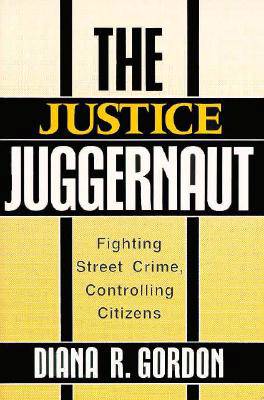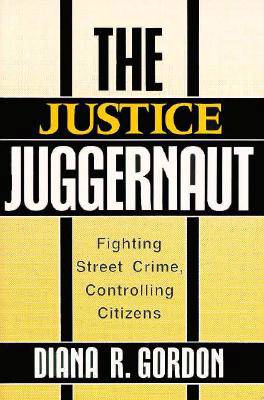
- Retrait gratuit dans votre magasin Club
- 7.000.000 titres dans notre catalogue
- Payer en toute sécurité
- Toujours un magasin près de chez vous
- Retrait gratuit dans votre magasin Club
- 7.000.000 titres dans notre catalogue
- Payer en toute sécurité
- Toujours un magasin près de chez vous
Description
"Argues convincingly that the conditions that produce our exceptionally high levels of crime are not, and cannot be, significantly remedied by the machinery of surveillance, apprehension, and punishment."--New York Times Book Review
"Gordon argues in her timely and interesting book that fear of crime has become a central feature of our nation's symbolic politics. . . . [Her] analysis is broadly historical and theoretical, invoking Foucault and Durkheim and the social construction of crime."--Contemporary Sociology
"A sophisticated analysis of recent government attempts to control street crime."--Library Journal
"Gordon's well-researched and profoundly explicit work raises some vexing ethical, legal, and public policy questions regarding the so-called 'get tough' philosophy in criminal justice practice over the past quarter century. . . . Should be required reading for students of criminal justice and policymakers at all levels."--Choice
"This is an important and timely book. Professor Gordon uncovers the symbolic power and substantive hollowness of today's 'get tough' approaches to crime and charts the disturbing growth of government surveillance."--Congressman Don Edwards
"Gordon ironically makes good use of one of the fruits of all this troubling 'netwidening': detailed, recent, good-quality, and usually national data on crime, offenders, and the activities of various elements of the criminal justice system. She skillfully weaves this data into descriptive portraits of the system in action."--Wesley G. Skogan, Political Science Quarterly
Spécifications
Parties prenantes
- Auteur(s) :
- Editeur:
Contenu
- Nombre de pages :
- 348
- Langue:
- Anglais
- Collection :
Caractéristiques
- EAN:
- 9780813514789
- Date de parution :
- 01-11-91
- Format:
- Livre broché
- Format numérique:
- Trade paperback (VS)
- Dimensions :
- 154 mm x 229 mm
- Poids :
- 480 g







